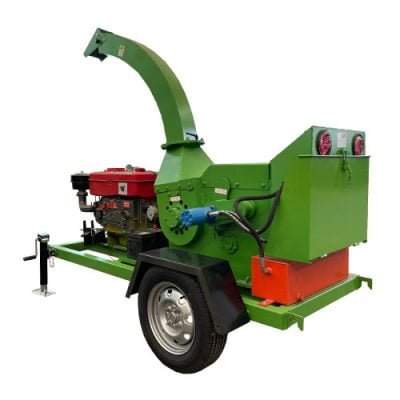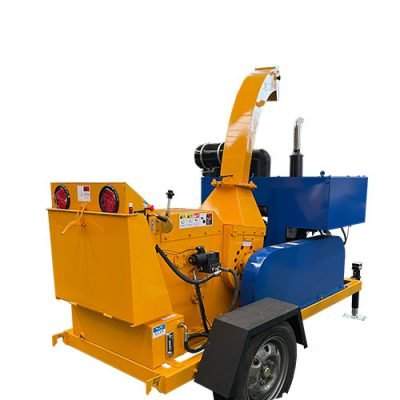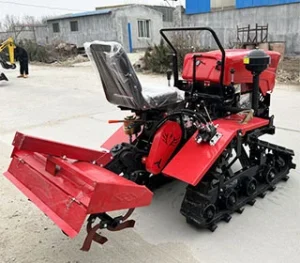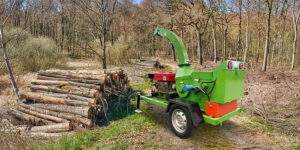Maximizing Efficiency: How to Choose the Right Wood Chipper for Your Yard
Introduction

A wood chipper is a valuable tool for any homeowner or landscaper looking to efficiently manage yard waste. Whether you’re clearing out dead branches, pruning trees, or tidying up after a storm, having the right wood chipper can make the task much easier. In this guide, we’ll explore the key factors to consider when choosing a wood chipper to maximize efficiency in your yard work.
Understanding Wood Chippers
Before diving into the selection process, let’s take a moment to understand what wood chippers are and how they work. A wood chipper is a machine designed to shred wood into smaller pieces, commonly known as wood chips or mulch. These machines come in various sizes and configurations, from small electric models suitable for home use to large industrial-grade chippers used by professional landscapers.
Factors to Consider
When selecting a chipper for your yard, several factors come into play to ensure you choose the right one for your needs. Here are some key considerations:
Power Source
Wood chippers are typically powered by either electricity, gasoline, or diesel. Electric models are suitable for smaller yards and offer ease of use and maintenance. Gasoline-powered chippers provide more mobility and are ideal for larger properties where access to electricity may be limited. Diesel chippers are the most powerful and are often used in commercial applications.
Capacity
Consider the size and type of wood you’ll be chipping. Smaller, residential-grade chippers are suitable for branches up to a certain diameter, while larger chippers can handle thicker branches and even whole trees. Choosing a chipper with the right capacity ensures efficient operation without overloading the machine.
Mobility and Portability
If you have a large property or need to move the chipper around frequently, consider factors such as weight, size, and whether the chipper has wheels or a tow hitch for easy transportation.
Safety Features
Safety should always be a top priority when operating any machinery, and chippers are no exception. Look for features such as safety guards, emergency shut-off switches, and automatic feeding mechanisms to minimize the risk of accidents.
Maintenance Requirements
Regular maintenance is essential to keep your wood chipper in good working condition. Consider factors such as ease of access for cleaning and servicing, availability of replacement parts, and any warranty or support offered by the manufacturer.
Here’s a table outlining different types of wood chipper maintenance tasks and their recommended frequency:

| Maintenance Task | Frequency |
|---|---|
| Blade Sharpening | Every 10-15 hours of use |
| Oil Change | Every 25 hours of use |
| Air Filter Replacement | Every 25 hours of use |
| Spark Plug Replacement | Every season or 100 hours |
| Belt Inspection and Tension | Every season or 50 hours |
| Chipper Housing Cleaning | After each use |
Conclusion
Choosing the right wood chipper for your yard is essential for maximizing efficiency and ensuring safe operation. Consider factors such as power source, capacity, mobility, safety features, and maintenance requirements before making your decision. By selecting the appropriate chipper for your needs, you can streamline your yard work and achieve professional-quality results.
FAQ
Q: Can I chip wet or green wood?
A: While some wood chippers are designed to handle wet or green wood, it’s generally recommended to chip dry wood for better performance and longevity of the machine.
Q: How often should I sharpen the blades?
A: Blade sharpening frequency depends on usage, but it’s typically recommended to sharpen the blades after every 10-15 hours of operation for optimal performance.
Q: Are wood chippers noisy?
A: Wood chippers can be noisy, especially larger models powered by gasoline or diesel engines. It’s advisable to wear ear protection when operating the machine for extended periods.
Q: Can I rent a wood chipper instead of buying one?
A: Yes, many equipment rental companies offer wood chippers for short-term use. Renting can be a cost-effective option for occasional yard projects.



